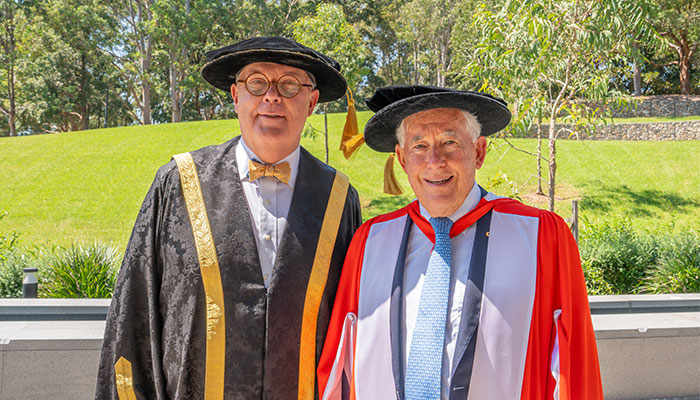Care workers overwhelmingly say they have insufficient time to either talk to their clients or get to know their uniqueness, or to support their decision making and independence.
Evidence has long shown that older people value the relationships they have in aged care services, aspire to feel at home and valued, and define quality services as those where staff have time and flexibility to get to know them and attend to their needs. These aspirations are also a feature of Australia’s quality standards.
“Yet it has become structurally difficult to provide care in this way,” lead author Professor Gabrielle Meagher from Macquarie University’s Department of Sociology says. “The Australian aged care system has to meet increasing levels of demand, and to respond to the increasing complexity of need among older people related to daily living, behavioural issues or complex health care. But our research shows this has not been matched with appropriate funding, staffing levels or a mix of staff skills.”
The Meeting the social and emotional support needs of older people using aged care services report comes a week before the Royal Commission into Aged Care Quality and Safety is due to hand down its interim report next Thursday (October 31).
The universities’ report found:
- Numbers of aged care places have outstripped workforce growth, with no increase in the ratio of fulltime equivalent care workers to residential care places since 2003.
- In the same period, residential care workers’ skill profiles have significantly deteriorated.
- Personal care workers perform an increased proportion of direct care work in residential settings, up from 57% (2003) to 72% (2016). Correspondingly, the share of nurses and allied health professionals has declined.
- Across residential and home care services, 90% of care workers agreed they had no time to respond to unexpected needs, or to spend time with an older person they found to be in low spirits.
- More than three-quarters (78%) said they had insufficient time to support older people to do things for themselves, such as use a walker instead of a wheelchair.
- Only 37% felt their managers understood the importance of workers’ relationships with older people, with many reporting they were seen to be “slacking off” if they attended to a client’s social and emotional needs.
“Care workers routinely observe that older people’s emotional needs are left unmet in the system designed to support them,” Wendy Taylor from RMIT’s School of Management says. “In the aged care system today, overlooking older people’s basic social and emotional needs has become part of accepted business practices.”
Dr Natasha Cortis, from UNSW’s Social Policy Research Centre, says the research shows that organisational supports for quality care are too thin: “We found that less than a quarter (22%) of aged care workers were receiving one-on-one support from a supervisor, and less than half (45%) were able to participate in team meetings to discuss the way they provide care. "
“Insufficient time and support for relationship building and care makes it difficult to realise principles of dignity, respect and person-centredness in aged care,” Professor Meagher says. “This partly explains the very high rates of social isolation and mental distress experienced by older people.”
“Employment conditions and pay rates in aged care also fail to recognise the specific skills and demands of the work, leaving care workers and older people vulnerable,” says Professor Sara Charlesworth of RMIT’s School of Management.
The report recommends:
- The psychosocial needs of older people be at the forefront of the design of aged care services.
- Aged care funding be increased to sufficient levels to enable services to be provided to all older people who need support, and this funding be care-centred.
- The aged care system’s human resources be regulated to ensure that rostering and daily work arrangements allow workers enough time to care and to offer continuity of care relationships.
- Workers have relevant practice and relational skills to deliver high-quality care, and be supported by managers so that they develop meaningful relationships with older people.
The report was prepared for the Health Services Union and United Voice, unions which represent aged care workers.



